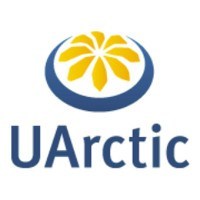IASSA Principles and Guidelines for Conducting Ethical Research in the Arctic
Preface
This statement of principles has been formulated in accordance with the Bylaws of the International Arctic Social Sciences Association (IASSA) adopted by the IASSA General Assembly on 29 October 1992 and amended by the IASSA Council on 16 March 2020. These Principles provide guidelines for all researchers working in the North in the social, natural and health sciences, and in the humanities. These principles are intended to promote mutual respect, communication and partnerships between researchers and northern residents. This statement is not intended to replace other international, national, professional, Indigenous or local guidelines. It is understood that there must be regular review of the principles.
Principles
All scientific investigations in the North should be assessed in terms of their potential human impact and interest. Social science research, particularly studies involving human subjects, requires special consideration, as do studies of land and resources that have economic, cultural, social and spiritual value to Indigenous peoples. In all instances, it is the responsibility of the principal investigator on each project to implement the following:
1. The researcher should consult with the appropriate regional, local and/or Indigenous authorities regarding planned research within their territories. An ethics protocol should be approved by appropriate entities prior to the commencement of research. In seeking approval from the appropriate entities and informed consent from participants, researchers must include plain local language descriptions of the research, identify all sponsors and sources of support; the person in charge and all investigators involved in the research; the purposes, goals, and time frame of the research; data gathering techniques (including audio and video recording, photographs, individual traditional knowledge maps, etc.) and data management and data ownership access (during and after the research is completed), informant/respondent rights to confidentiality, and notice of support for the research by the responsible communities, organizations and/or representatives.
2. The researcher should consult with and, where applicable, include local residents and Indigenous Peoples in project planning and implementation. Sufficient opportunity should be provided for them to express their interest in participating in the research and they should be fully informed of the practical benefits of participating. Researchers should organize their research with full knowledge of other research projects in the communities and with consideration of the total research burden over time.
3. Research results should be presented to local communities in plain language and where possible translated into local languages. Scientific and technical terms must be explained. Participants in the research should have the right to review all products before they are disseminated publicly, and researchers should inform community members about how the products are being used. All research products should be shared with individuals involved in the research.
4. Publications should always refer to the informed consent of participants and give credit to local and Indigenous expertise and knowledge shared with the research project in both the original use of data and in its deposition for future use. Co-authorship is an appropriate way to recognize the contributions of local and Indigenous knowledge-holders. Researchers must abide by any restrictions on publication (scientific or otherwise) negotiated during the community engagement phase. This may include embargoes on results or the non-publication of some or all results.
5. The researcher must respect local cultural traditions, languages, and values. Efforts should be made to incorporate local and Indigenous/traditional knowledge and experience and to acknowledge the principle of cultural property.
6. As part of the research process, efforts should be made to provide meaningful learning experiences, training, and economic opportunities for local communities and Indigenous peoples.
7. Research on humans should be undertaken in a manner that respects their privacy and dignity. Subjects must remain anonymous unless they have agreed to be identified. If anonymity cannot be guaranteed, the subjects must be informed of the possible consequences of becoming involved in the research and offered the option to refrain from participating.
8. All research involving children must be fully justified and never undertaken without the consent of the children and their parents or legal guardians.
9. Sacred sites, cultural materials and human remains cannot be disturbed or removed without appropriate local consent and in accordance with international, national, local, Indigenous and tribal laws and regulations.
10. We encourage researchers to inform communities and participants of these ethical principles that we follow.
11. Research should be beneficial for local communities and their political decision makers through appropriate knowledge sharing as outlined in paragraph
As amended by the IASSA Council on 16 March 2020





